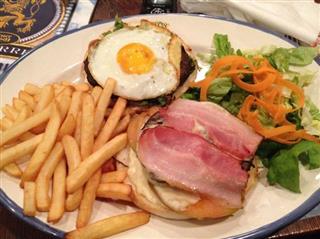 Close Topic Options
Close Topic OptionsEating Disorder Or Overreacting
Eating Disorder Overreacting - Psychology, Special Needs, Health - Posted: 25th Mar, 2018 - 2:30pm
Eating Disorder Or Overreacting
Eating Disorder Or Overreacting
I'm 22 years old and have been suffering from severe depression for about 15 months. I had episodes in the past but was able to get through them without treatment. I have made a lot of progress in the past 6 months and at the moment my depression is largely under control with the help of medication, Zoloft 100mg + Welbutrin 300 mg, and weekly therapy. But for the past few weeks I have been engaging in eating disordered behaviors pretty consistently, trying to restrict most days and purging a few times a week. I do want to lose weight, but not really for aesthetic reasons. It's more because I feel like I don't "Deserve" To be well-nourished and it's "Wrong," Not necessarily unattractive, for me to weigh as much as I do at my healthy weight at 4'11" And ~102 lbs.When I eat normally I usually feel guilty and as though my body has somehow expanded, though I know it's impossible. I've had these thoughts on and off over the past year, but usually dealt with them by self-injuring, which I haven't been doing lately. I know that restricting really impacts my quality of life but I still feel compelled to do it. I feel that I need to be given "Permission" To eat.I don't want to let this unravel the strides I have made in improving my mental health, but I don't know what to do. I feel like I would benefit from some aspects of treatment for eating disorders, in addition to my normal therapy, like being accountable to a dietician for a meal plan but at the same time I don't want to be accused of overreacting when it hasn't been that long and I haven't lost much weight.Do you think it would be appropriate for me to seek additional support?
Source

Eating Disorder Or Overreacting (Hover)
Eating Disorder Or Overreacting Health & Special Psychology
Obese or anorexic individuals react differently to taste, study says
Women suffering from anorexia nervosa and those who are obese respond differently to taste, a finding that could lead to new treatments for the eating disorders, report investigators. Ref. Source 7m.
Overreacting Disorder Eating
You are what you think you eat. Despite eating the same breakfast, made from the same ingredients, people consumed more calories throughout the day when they believed that one of the breakfasts was less substantial than the other, investigators have found. Source 4t.
Overreacting Disorder Eating
Calorie restriction trial in humans suggests benefits for age-related disease. One of the first studies to explore the effects of calorie restriction on humans showed that cutting caloric intake by 15 percent for two years slowed aging and metabolism and protected against age-related disease. The study found that calorie restriction decreased systemic oxidative stress, which has been tied to age-related neurological conditions such as Alzheimer's and Parkinson's diseases, as well as cancer, diabetes, and others. Source 4u.
 TOPIC: Eating Disorder Or Overreacting
TOPIC: Eating Disorder Or Overreacting Over Eating Addicition
Over Eating Addicition